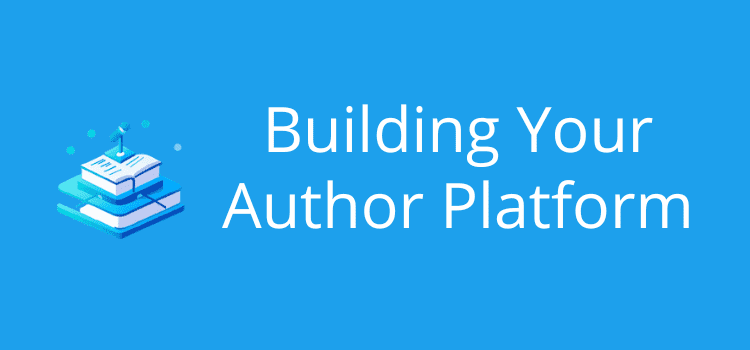
If you’re an aspiring or published author, you probably know that building an author platform helps you reach more readers and sell more books.
But what exactly is an author platform, and how do you build one?
The starting point is creating a blog or website, but there many more parts to it than that.
Here are some practical tips on how to help you boost your online visibility and establish your authority as an author.
It doesn’t matter if you plan on self-publishing or taking the traditional publishing route by finding a literary agent.
You will need a platform to showcase your talents and achievements.
Literary agents and publishing houses today want great writers
But they also want authors who know how to market their writing.
Of course, most new authors take the self-publishing route.
Then you are on your own, so your marketing strategies are imperative for your success.
But it’s not simply a matter of having a website and sharing a few posts on social media.
There is much more to building your platform and getting the elements to work together.
If you have already published and don’t have a clear idea of how to market yourself and your books, you can still catch up.
Let’s look at what you can do and where you can start.
Build your platform
Writing books and marketing are two skill sets.
They are so far opposed that many authors shudder at the thought of turning themselves into salespeople.
But trying to get people to buy your book using imperatives is not what it takes to create an effective platform.
What it takes is knowledge, planning, time management, and a good dose of determination and patience.
Know your target readers
The first step to building your author platform is to know who your target readers are.
Who are the people who would enjoy and benefit from your books?
What are their demographics, interests, and preferences?
How do they discover and consume books?
Understanding your target readers will help you tailor your message, content, and marketing strategies to attract and engage them.
Identify and define your brand
The next step is to identify and define your brand as an author.
Your brand is the unique combination of your personality, values, voice, style, genre, and message that sets you apart from other authors.
Your brand is what makes you memorable and recognizable to your readers.
It’s also what connects you with them on an emotional level.
To identify and define your brand, think about what you stand for, what you want to achieve, how you want to be perceived, and what makes you different.
Create a website and blog
One of the essential elements of your author platform is your website and blog.
The difference between the two is that a website is primarily static content, whereas a blog posts content in chronological order.
Most sites today are a combination of the two.
Your website is your home base online, where you can showcase your books, bio, portfolio, testimonials, media appearances, awards, and anything else that demonstrates your credibility and authority as an author.
Your website is also where you can capture leads, grow your email list, and sell your books directly to your readers.
To create a website that works for you, make sure it’s user-friendly, mobile-responsive, fast-loading, secure, and easy to update, but keep an eye on your costs.
The graphic below illustrates how fundamental a blog is to the movement of information between other platforms on the Internet.
A blog is alive, ever-changing, flexible, and extremely communicative.
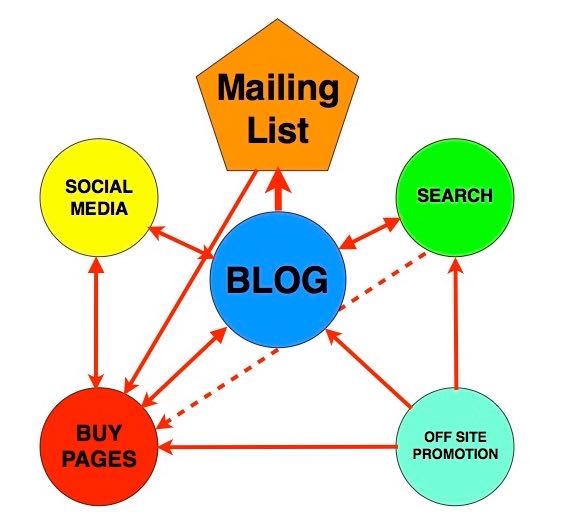
Your author blog is your home base, and from there, you can start to build your author platform.
Every article that you post on your blog is one additional communicative element.
It then feeds into your social media channels and search engines.
It gives pathways for people to buy your books. But most importantly of all, it is your conduit for building a mailing list.
Blog consistently
Your blog is where you can share valuable content with your readers on a regular basis.
You can use your blog to educate, entertain, inspire, or inform your readers about topics related to your books or genre.
You can also use your blog to showcase your writing skills, establish your expertise, build trust and rapport with your readers, and drive traffic to your website.
To start blogging consistently, create a content calendar, write engaging headlines and posts, use images and videos, optimize for SEO, and promote your posts on social media.
Build an email list
One of the most effective ways to build your author platform is to start an email list of subscribers.
It is a list of people who have given you permission to contact them via email.
These are people who are interested in you and your books and who want to hear from you.
An email list allows you to communicate directly with your readers without relying on third-party platforms or algorithms.
You can use email marketing to nurture relationships with your readers, provide value-added content, announce new releases or events, solicit feedback or reviews, and sell more books.
To build an email list, create a lead magnet (a freebie that entices people to sign up), set up a landing page (a web page that captures email addresses), use an email service provider (a tool that manages and sends emails), and offer value in every email.
As old-fashioned as email is, it is still the most powerful means of getting your message out to your target audience.
One hundred Facebook posts don’t come close to having the same effect as one well-written and targeted email.
Choosing your blogging platform

As far as which blogging platform is best, I have to say that WordPress is the leader without a doubt.
You can choose wordpress.com, which is a free online platform and very easy to set up.
Or you can opt for a self-hosted WordPress site, which is definitely not for those without some technical ability.
However, if you are serious about blogging, learning how to use a self-hosted WordPress site is the way to go in the end.
There are so many more functions, features, and plugins available to help you find more potential readers.
But you could also consider Wix, Squarespace, or Weebly.
With whichever platform you use, posting regularly on your blog is the primary way to generate traffic and, therefore, interest in you and your books.
It doesn’t mean writing until your fingers bleed and posting four times a day.
Once or twice a week is ample, so long as you make the most of each post.
One other option is for you to accept guest posts on your blog. It can help you build content a little quicker.
But simply publishing articles on your blog is not enough.
You have to spread the word about every blog post you write.
Write great content
The adage that content is king is very true when it comes to blogging, social media, and building a loyal following.
You need to focus your articles on topics that are related to the author brand that you are building.
For example, if you are a science fiction author, write blog articles related to space, science, physics, technology, and perhaps, other science fiction authors.
Starting your blog and writing regular posts is an extension of your passion.
Once you have a reasonable collection of blog posts, say fifty or so, you can recycle them all over again on X (Twitter) and Facebook for your new followers to read.
Your blog posts will also attract people from search engines like Google and Bing.
Over time, you will become a source of informative content.
Your articles will then have a good chance of being shared or re-tweeted, and your reach will expand and grow.
If you write historical fiction, use the same logic. Post content that is related to the historical period or geographical area that you are writing about.
No matter what your writing genre is, there will be a focused topic for you to use to build an audience.
It’s also important to remember that once your books are published, they will appear in search engines.
It is because Amazon, Smashwords, Apple, B&N, and other online publishers make sure their products are listed on search engines.
Once people start to know your name, or your writing and blogging pen name, finding your books is easy for someone who is genuinely interested in knowing more about you and your books.
Write guest posts
Another way to build your author platform is to write guest posts for other blogs or websites that reach your target audience.
Guest posting is a form of content marketing that allows you to showcase your expertise, expose yourself to new readers, build backlinks to your website, and drive traffic to your website or landing page.
To write guest posts, research potential sites that accept guest posts.
Pitch them with relevant topics or ideas and write high-quality posts that follow their guidelines.
Include a bio and a link to your website or landing page, and share the posts on social media.
One tip for building your author platform is to use social media wisely.
Social media is a powerful tool for connecting with readers, sharing content, building a community, and promoting yourself and your books.
However, it can also be overwhelming, distracting, and time-consuming if not used strategically.
Use social media wisely and only choose the platforms that suit your goals, genre, and audience.
Try to create a consistent profile and brand across platforms and post regularly but not excessively.
Engage with followers and influencers and share valuable and varied content.
But always measure and analyze your results to make sure you are not wasting your time.
Connect offline
While online platforms are essential for building your author platform, don’t neglect offline opportunities.
Connecting offline with potential readers, other authors, bookstores, libraries, media outlets, and organizations can help expand your network.
Build relationships, and increase your visibility and credibility.
Here are some ways to connect offline.
Attend or host book signings, readings, or launches.
Join or start a local writers’ group or club.
Participate in literary festivals, conferences, or workshops.
Pitch yourself as a speaker or panelist or seek media coverage or interviews.
The Internet is called the Web for a reason
It is a web that leads to and from many points.
Your task is to build as many points possible on the Web that lead back to you, your books, and, most importantly, your blog.
Building an author platform will reap the rewards for you in the long term and is not as difficult as it first seems.
Have a blog and post regularly, leverage social media intelligently, and always keep building your email list.
Once you set it up, it will take, at most, a few hours of work each week to keep your author platform working hard for you.
Summary
Unless you are a celebrity, selling books is hard work.
But if you can build your author blog, platform, and audience, you can grow and create recognition for your author brand and books over time.
It is not such a difficult task now. Social media and the Internet have allowed anyone to create a following and build a successful means of promotion.
However, many make the mistake of thinking it is merely a matter of opening a Twitter or Facebook account.
Then follow a few people and post hundreds of messages with links about where to buy their book.
Or worse, thinking that the killer phrase of, check out my book, is all needed to start book sales.
Not only will sales fail to eventuate, but this approach will also drive people away in droves.
It will fail to build what you need, which is your author platform and audience.
Building an author platform is not a one-time event but an ongoing process that requires time, effort, and patience.
However, it’s also rewarding and fun as you get to connect with readers who love what you do.
By following these tips, you can create an author platform that boosts your visibility and credibility and helps you reach more readers and sell more books.
Related Reading: Understanding Author Promotion vs. Book Marketing For New Authors
Share This Article
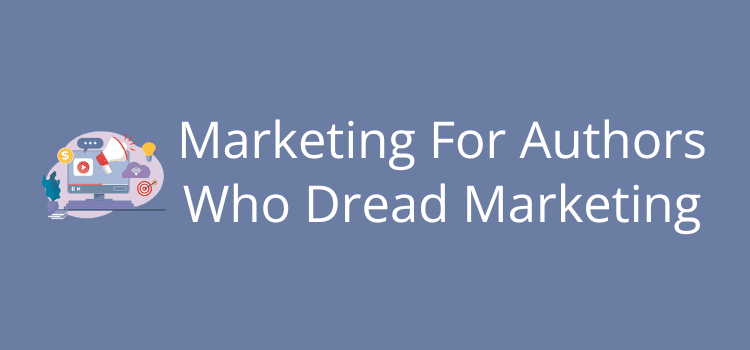
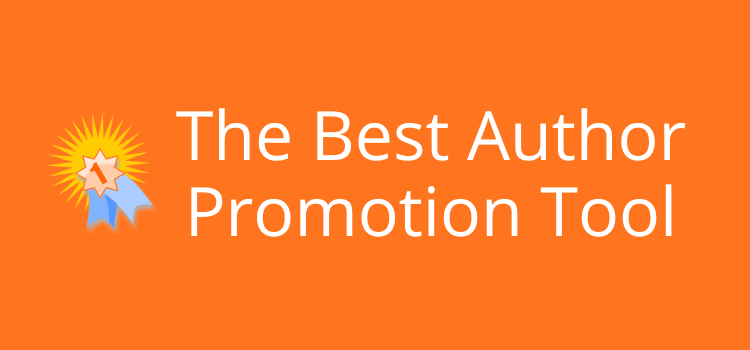
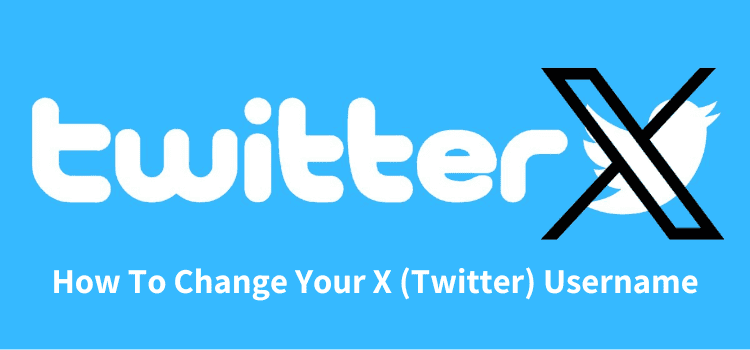
Yikes, I’ve been on Blogspot for a long time. Thanks for the warning. I set up a WordPress page for my daughters business but the thought of losing my comments and articles on Blogspot is scary. I guess I haven’t changed it because all my social media links are to it as well as my physical printed bookmarks, business cards, posters, social media sites, and the back matter of my books. Can I transfer everything from Blogspot to a WordPress site? I backed up all my articles (learned that a long time ago when a friend was hacked . She lost years worth of her blog). I’ve investigated a WordPress template specifically designed by an author for authors. I am seriously thinking about changing. Change is the name of the game in publishing. Since Google dropped Google + I’m not surprised at the thought of them dropping Blogspot. It was easy to use and comfy. Need to get out of my comfort zone! Even if it means changing all my marketing and back matter. My new book is coming out July 2019, and I was going to do a 2nd edition on my first book anyway. So now is a good time. You have a great website, love the graphic design, clean, easy to read, great graphics, gets right to the point. I’ll keep on reading your posts. Thanks for the tips.
Such a good post. Every aspect is spot on. Saved it in order to re read it to make sure I’ve covered my bases.
Thank you for the post. I’m starting out still and while I finish the first draft of my novel (which will end up being edited until my fingers bleed), I’ve decided to start on my platform. I started using twitter and began a blog. The blog is less personal and more so informative for other writers.
All good advice Derek. I have been on Twitter and had my own blog for a year now but followers remain very small. I realise through this article and others similar that I need to be spending a lot more time promoting and interacting. I work full time and am trying to write too so finding the time and prioritising is difficult. But the main thing is I really enjoy it and it does fill my commute so it’s not all bad! Thanks again for the post.
It takes time, Lindsay. But even 30 minutes each day helps build your base.